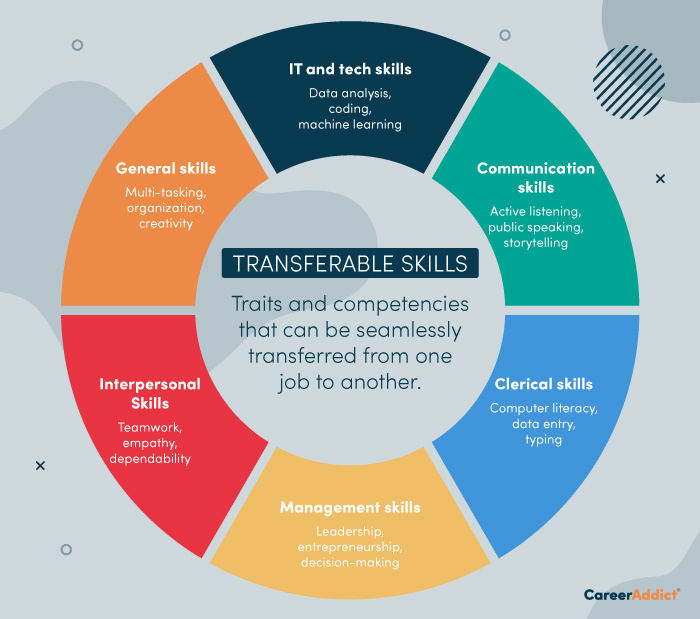Unlocking Opportunities in the Modern Workforce
The modern job market can be a daunting place for individuals without a degree or experience. The traditional path to employment, which often requires a college degree and relevant work experience, can be a significant barrier to entry for many. However, with the rise of the gig economy, technological advancements, and shifting industry needs, there are now more opportunities than ever for individuals to break into the workforce without a degree or experience.
According to the Bureau of Labor Statistics, the number of workers in non-traditional employment arrangements, such as freelancing or temporary work, has increased significantly in recent years. This shift towards a more flexible and adaptable workforce has created new opportunities for individuals to enter the job market, even without a degree or experience.
Moreover, many industries are now placing greater emphasis on skills and abilities rather than traditional qualifications. For example, the tech industry is often more interested in a candidate’s coding skills and experience with specific software than their educational background. Similarly, the healthcare industry is increasingly looking for candidates with relevant certifications and training rather than a traditional degree.
As a result, individuals without a degree or experience can now explore alternative paths to career success. By acquiring in-demand skills, building a strong online presence, and networking with industry professionals, individuals can increase their chances of getting hired and succeeding in their chosen field.
Furthermore, the rise of online education and training platforms has made it easier than ever for individuals to acquire new skills and knowledge. From online courses and boot camps to vocational training and certification programs, there are now a wide range of options available for individuals to upskill and reskill.
By embracing these changes and exploring alternative paths to career success, individuals without a degree or experience can unlock new opportunities and achieve their career goals. Whether it’s through acquiring in-demand skills, building a strong online presence, or networking with industry professionals, there are now more ways than ever for individuals to break into the workforce and succeed.
Identifying In-Demand Skills and Industries
In today’s fast-paced job market, having the right skills and experience can make all the difference in securing a job. For individuals without a degree or experience, it’s essential to focus on acquiring skills that are in high demand across various industries. This can significantly improve their chances of getting hired and succeeding in their chosen field.
Some of the most in-demand skills across industries include data analysis, digital marketing, cloud computing, and cybersecurity. These skills are highly valued by employers, and having them can give job seekers a competitive edge in the job market. Additionally, industries such as tech, healthcare, and sales often hire candidates without degrees or experience, provided they have the right skills and training.
The tech industry, for example, is constantly evolving, and companies are looking for candidates with expertise in areas like artificial intelligence, machine learning, and software development. Similarly, the healthcare industry is facing a shortage of skilled professionals, and individuals with training in areas like medical billing, coding, and healthcare management are in high demand.
Sales is another industry that often hires candidates without degrees or experience. Companies are looking for individuals with strong communication skills, a passion for sales, and the ability to build relationships with customers. With the rise of e-commerce and online sales, there are now more opportunities than ever for individuals to succeed in sales without a traditional degree or experience.
By focusing on acquiring in-demand skills and targeting industries that hire candidates without degrees or experience, individuals can significantly improve their chances of getting hired and succeeding in their chosen field. Whether it’s through online courses, boot camps, or vocational training, there are now more ways than ever for individuals to acquire the skills and knowledge they need to succeed in the job market.
Some popular online platforms for acquiring in-demand skills include Coursera, Udemy, and LinkedIn Learning. These platforms offer a wide range of courses and training programs in areas like data science, digital marketing, and cloud computing. Additionally, many companies offer on-the-job training and apprenticeships, which can provide individuals with the skills and experience they need to succeed in their chosen field.
How to Get Hired without a Degree or Experience
Getting hired without a degree or experience can be challenging, but it’s not impossible. With the right strategies and mindset, individuals can increase their chances of landing a job and starting their career. Here are some actionable tips and strategies to help individuals get hired without a degree or experience:
Build a strong online presence: In today’s digital age, having a professional online presence is crucial. Create a LinkedIn profile and make sure it’s complete and up-to-date. Use keywords relevant to your industry and highlight your skills and experience. Additionally, create a personal website or blog to showcase your work and projects.
Network and make connections: Networking is key to getting hired. Attend industry events, join online communities and forums, and connect with people in your industry on LinkedIn. Reach out to people you admire and ask for advice or informational interviews. Building relationships with people in your industry can help you learn about job opportunities and get recommendations.
Create a compelling portfolio or resume: A well-crafted portfolio or resume can make a big difference in getting hired. Highlight your skills, experience, and achievements, and use language from the job posting to describe your qualifications. Use action verbs and quantify your achievements to demonstrate the impact you can make.
Prepare for interviews: Preparation is key to acing an interview. Research the company and the position, and practice answering common interview questions. Use the STAR method to structure your responses and highlight your skills and experience. Additionally, prepare questions to ask the interviewer to demonstrate your interest in the company and the position.
Consider internships or volunteer work: Internships or volunteer work can provide valuable experience and skills, and can also lead to full-time job opportunities. Use these opportunities to build your network, gain experience, and develop your skills.
Highlight transferable skills: Even if you don’t have direct experience in the field, you may have transferable skills that are valuable to employers. Highlight these skills on your resume and in your cover letter, and be prepared to explain how they can be applied to the job.
Be proactive and persistent: Getting hired without a degree or experience can take time and effort. Be proactive and persistent in your job search, and don’t get discouraged by rejections. Keep applying, networking, and building your skills, and eventually, you’ll land a job that’s right for you.
Exploring Alternative Education and Training Options
The traditional path to education and training is no longer the only way to acquire skills and knowledge. With the rise of alternative education and training programs, individuals can now access a wide range of courses and training programs that can provide a competitive edge in the job market.
Online courses and boot camps are becoming increasingly popular, offering individuals the opportunity to learn new skills and gain experience in a short amount of time. These programs are often designed to be flexible and affordable, making them accessible to individuals who may not have the time or resources to pursue traditional education.
Vocational training is another alternative education option that can provide individuals with the skills and knowledge they need to succeed in a specific industry. These programs are often hands-on and focused on practical skills, making them ideal for individuals who learn best through experience.
Apprenticeships are also becoming more popular, offering individuals the opportunity to learn from experienced professionals in their industry. These programs combine on-the-job training with classroom instruction, providing individuals with a comprehensive education and training experience.
MOOCs (Massive Open Online Courses) are another alternative education option that can provide individuals with access to high-quality courses and training programs. These programs are often free or low-cost, making them accessible to individuals who may not have the resources to pursue traditional education.
By exploring alternative education and training options, individuals can gain the skills and knowledge they need to succeed in the job market. These programs can provide a competitive edge, making it easier for individuals to get hired and advance in their careers.
Some popular alternative education and training platforms include Coursera, Udemy, and LinkedIn Learning. These platforms offer a wide range of courses and training programs in areas such as business, technology, and healthcare.
When choosing an alternative education and training program, it’s essential to consider the program’s reputation, curriculum, and cost. Individuals should also research the program’s accreditation and certification, ensuring that it meets their career goals and industry standards.
Highlighting Transferable Skills and Experience
When it comes to getting hired without a degree or experience, highlighting transferable skills and experience is crucial. Transferable skills are skills that can be applied to different industries and job roles, such as communication, problem-solving, and teamwork. By emphasizing these skills, individuals can demonstrate their value to potential employers and increase their chances of getting hired.
Volunteer work, internships, and relevant hobbies are all great ways to gain transferable skills and experience. For example, volunteering at a non-profit organization can help individuals develop skills such as project management, leadership, and communication. Internships can provide individuals with hands-on experience in a specific industry or job role, while relevant hobbies can help individuals develop skills such as coding, writing, or design.
When highlighting transferable skills and experience, it’s essential to be specific and provide examples. Instead of simply stating that you have “excellent communication skills,” for example, describe a specific situation where you used those skills to achieve a positive outcome. This will help potential employers understand the value you can bring to their organization.
In addition to highlighting transferable skills and experience, individuals should also emphasize their achievements and accomplishments. Instead of just listing job responsibilities, for example, describe specific achievements and how they contributed to the organization’s success. This will help potential employers see the value you can bring to their organization and increase your chances of getting hired.
Some examples of transferable skills and experience include:
- Project management: Coordinating a team to complete a project, managing timelines and budgets, and ensuring successful outcomes.
- Leadership: Leading a team, motivating and guiding team members, and making strategic decisions.
- Communication: Writing, speaking, and presenting to different audiences, and communicating complex ideas in a clear and concise manner.
- Problem-solving: Analyzing problems, identifying solutions, and implementing effective solutions.
- Teamwork: Collaborating with team members, building strong relationships, and contributing to a positive team culture.
By highlighting transferable skills and experience, individuals can demonstrate their value to potential employers and increase their chances of getting hired. Remember to be specific, provide examples, and emphasize achievements and accomplishments.
Overcoming Common Obstacles and Biases
Individuals without a degree or experience often face common obstacles and biases when trying to enter the workforce. These obstacles can include ageism, lack of connections, or limited job opportunities. However, with the right strategies and mindset, individuals can overcome these obstacles and achieve their career goals.
Ageism is a common obstacle faced by older individuals who are trying to enter the workforce. Many employers assume that older workers are not as tech-savvy or adaptable as younger workers. However, this is not always the case. Older workers can bring a wealth of experience and knowledge to the workforce, and can be just as adaptable and tech-savvy as younger workers.
To overcome ageism, individuals can focus on highlighting their relevant skills and experience, rather than their age. They can also consider working with a career coach or recruiter who can help them tailor their resume and cover letter to the specific job they are applying for.
Lack of connections is another common obstacle faced by individuals without a degree or experience. Many job opportunities are found through networking and connections, rather than through traditional job search methods. However, individuals can build their network by attending industry events, joining online communities and forums, and connecting with people in their industry on LinkedIn.
Limited job opportunities is another obstacle faced by individuals without a degree or experience. Many jobs require a degree or experience, and individuals may feel like they are not qualified for these jobs. However, individuals can consider working with a career coach or recruiter who can help them identify job opportunities that do not require a degree or experience.
Additionally, individuals can consider taking courses or getting certified in a specific skill or industry. This can help them build their skills and knowledge, and make them more competitive in the job market.
Biases are also a common obstacle faced by individuals without a degree or experience. Many employers have biases against individuals who do not have a degree or experience, and may assume that they are not qualified for the job. However, individuals can overcome these biases by highlighting their relevant skills and experience, and by showing enthusiasm and a willingness to learn.
By overcoming these common obstacles and biases, individuals without a degree or experience can achieve their career goals and succeed in the workforce.
Success Stories and Real-Life Examples
There are many inspiring stories of individuals who have successfully entered the workforce without a degree or experience. These individuals have demonstrated that it is possible to achieve career success without traditional qualifications.
One example is Sarah, who dropped out of college due to financial constraints. However, she was determined to pursue a career in tech. She took online courses and boot camps to learn coding and web development skills. She also built a strong online presence and networked with professionals in the industry. After several months of job searching, Sarah landed a job as a junior developer at a startup.
Another example is John, who never had a degree or experience in sales. However, he was passionate about sales and had a natural talent for it. He took online courses and attended seminars to learn sales skills. He also built a strong network of contacts in the industry. After several months of job searching, John landed a job as a sales representative at a large corporation.
These success stories demonstrate that it is possible to achieve career success without a degree or experience. They also highlight the importance of hard work, determination, and a willingness to learn and adapt.
Other examples of individuals who have successfully entered the workforce without a degree or experience include:
- Alex, who became a successful entrepreneur without a degree or experience. He took online courses and attended seminars to learn business skills. He also built a strong network of contacts in the industry.
- Emily, who became a successful writer without a degree or experience. She took online courses and attended writing workshops to learn writing skills. She also built a strong online presence and networked with professionals in the industry.
- Michael, who became a successful artist without a degree or experience. He took online courses and attended art workshops to learn art skills. He also built a strong online presence and networked with professionals in the industry.
These success stories demonstrate that it is possible to achieve career success without a degree or experience. They also highlight the importance of hard work, determination, and a willingness to learn and adapt.
Staying Adaptable and Focused in a Rapidly Changing Job Market
The job market is constantly evolving, and it’s essential to stay adaptable and focused to succeed. With the rise of automation and artificial intelligence, many jobs are changing, and new ones are emerging. To stay ahead of the curve, individuals need to be willing to learn and adapt to new technologies, skills, and industries.
Continuous learning is key to staying adaptable in a rapidly changing job market. Individuals should prioritize ongoing education and training, whether through online courses, workshops, or conferences. This will help them stay up-to-date with the latest trends and technologies in their industry.
Professional development is also crucial for career growth. Individuals should seek out opportunities to develop new skills, take on new challenges, and build their professional network. This can include attending industry events, joining professional organizations, or seeking out mentorship.
Staying focused is also essential in a rapidly changing job market. Individuals should prioritize their goals and objectives, and stay committed to their career aspirations. This can include setting clear goals, creating a career roadmap, and seeking out support from a career coach or mentor.
Some tips for staying adaptable and focused in a rapidly changing job market include:
- Stay curious and open to new ideas and technologies.
- Prioritize ongoing education and training.
- Seek out opportunities for professional development.
- Stay focused on your career goals and objectives.
- Build a strong professional network.
By staying adaptable and focused, individuals can thrive in a rapidly changing job market. Whether you’re just starting out or looking to advance your career, it’s essential to be willing to learn and adapt to new challenges and opportunities.








